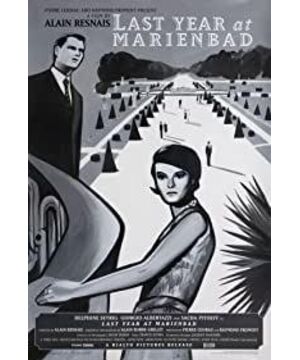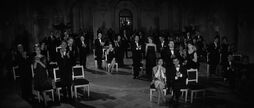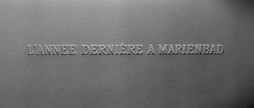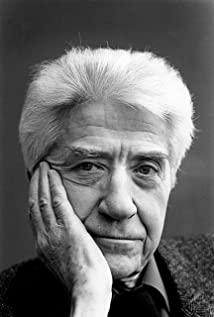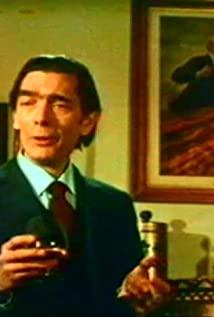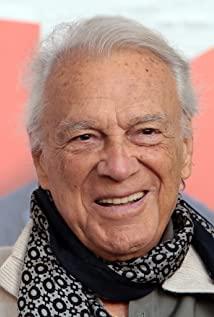The world is neither meaningful nor absurd, it exists, that's all. ----Grillet
Alain Robe-Grillet is a famous "bad boy" in the literary world: he is the founder of the French "new novel" genre, and he is the most iconoclastic. He advocates building a more substantial world, letting the so-called "metaphysics" and "meaning" lose their mystery and return to the most primitive independence and accuracy. Greer is aimed at novel writing. In the 20th century, the rapid development of industrialization has changed life into a new look, but people's thinking has not changed at all. People are still imprisoned in old moral concepts, ethical consciousness. People complain that predecessors have said everything they can; people no longer believe in the "depth" of the human heart. At that time, the only popular form of fiction was the bourgeois novel. The art of fiction is dying.
"Now, not only do we not see the world as our own, as private property designed to our needs and easily tamed, but we simply don't believe in its 'depth'."
The philosophy behind Greer's claims is not unique (in retrospect). We can easily think of Sartre's "existentialism" and Wittgenstein's "the meaning of the world is outside the world". At the same time, the French "new wave cinema" came to mind. Under the catalysis of industrialization, people realize the barrenness of the spiritual world, and artists and philosophers are like ants on a hot pot looking for a solution. Individual efforts generally tend to go in the same direction: stripping away the servility left by history on people, and redefining everything on a philosophical level after people realize nothingness. To this day, this cause still seems to be far away, our sap has not been wiped out, we cannot escape our pathetic inertia, and we fear that our consciousness will be stripped from some concepts.
"The traditional role of imagery is to develop nature, dig down layer by layer, reach a more hidden bottom layer and finally reveal some embarrassing secrets to the world. It was the peaceful world (the world on the surface) that sent the message of victory, describing the secrets he touched with his own hands."
For the creation of novels, Greer proposed the idea of digging in depth. One thing worth noting about this claim is its purity. As mentioned earlier, we are caught in the whirlpool of inertia, so it is extremely difficult for us to see things without prejudice. Inertia is very stealthy, clinging to the action before it is made. Therefore, it is easy to make overly extreme views and use overly fancy representations. Words fall into vulgarity in this exaggeration, and we don't know it. This is like looking at the world through a layer of stained glass decorated in the name of literature and art, but in fact it has long since deviate from the original appearance. We have to wake up, just like when we first see things. We will find that art has not yet penetrated into the smallest corners, and many things in this world are not yet the most thorough. Fiction creation is like this, and art should be like this.
Godard, the representative of French New Wave films, has been experimenting with different film languages in order to express his ideas. In "As You Like It", he expressed his grand ideas in a delicate and controllable form. The movie is great, but in terms of popular viewing habits, it's weird. This is also the reason why many literary films are difficult to understand, but we should try to accept new things. As Susan Sontag said: Art tends to form. Form may be understood as style, which is the first thing that comes to the mind of the creator. Based on the situation, the thought can be fully expressed, and its performance is illogical, something like intuition that permeates the hearts of the audience. The new situation that Greer established for the text is "to show that the visual and descriptive words are limited to measure, to locate, to limit, to define." His work is also extremely obscure: descriptions that are precise to the bone, fragments that are chaotically spliced, Weird perspective. It makes people feel something, but the meaning is unclear, they don't know what to say, and they seem to say too little.
Alain Ray is the representative figure of the French "New Wave Film Left Bank". The characteristic of the "left bank" is the literaryization of the film: similar to Greer's proposition, the lens of Resnais' films often adopts a fixed angle and moves slowly. Even if all images are adjusted in light, they will never be sacrificed. specific visibility. The movement of the camera is always accompanied by muttering male or female voices, reciting lines that seem to have been picked out of bound and published literature. The editing of Renai's films often abandons the montage in the plot logic, but carefully constructs each picture to express independent content. On the other hand, Greer's work is the cinematization of literature. The performance of its text is close to that of a camera.
"Last Year at Marienbad" is a film written by Greer and directed by Resnais. In the film, there is only a pair of men and women, in the picture of the past, the present, and the future being equally presented. There is no introduction to the identities of the male and female protagonists in the film. They are placed in a secluded and palatial hotel, just like throwing two insects with some connection into a small box, and then the insects start to "entangle" . Susan Sontag said: "In this film, a strong emotion - the disorientation of lust and the pain of longing - is elevated to the level of meta-emotion by being placed in a location of abstract character. The concise form is often more able to touch the most essential part of the thought: a male voice always appears behind the camera, and the camera changes accordingly with his statement. Statements are all concrete, such as baroque decorations in restaurants, porches, walls, sculptures. Statements are sometimes about the past, sometimes about the present, sometimes about fantasies, but without pre-explaining them, the audience can only feel what it refers to from the statement itself—the many specifics. Through this design, the film achieves the purpose of presenting the past, the present and the future together.
"Therefore, this film in our hearts is equally cognizant of the fragmentary visions of the real, the present and the past, or the fragmentary visions of the future, and even the fragmentary visions that are entirely hallucinatory, as presented to us by sight and hearing, And allow these scenes to alternate with each other.”
By building gorgeous sets filled with fashion models, high-class people - and what are these people doing here? Do nothing - what the film actually represents is nothingness. The heroine is also a member of nothingness. She may know the falsehood of this world, but it has become her habit during her life, and the world gives her security. The male protagonist suddenly appears, creates a fictional past for the female protagonist, and insists on taking her away to find something: maybe the future, freedom, something like that. As for the past of the heroine interspersed in the film, in the insistence of the hero and the denial of the heroine, we cannot judge which is true or false, perhaps the same nothingness. But in the end, the heroine gave in a little bit, and the past became a reality little by little. At the agreed noon, the heroine stayed away with the hero. The "past" may seem tempting, but in reality it is nothing more than nothing. And when we look back, we're never sure if it was still the way it was. But when the past is acknowledged, it actually becomes the present, and seems to be the present all along. The point of the film is to present, not to illustrate, in past, present, and future relationships, we reconsider our feelings and even the meaning of our existence.
"Jealousy" is Greer's most detailed work. It has only a few tens of thousands of words, and to be precise, it only explains one thing: the wife goes shopping in the city with the neighbors. The title of the book is Jealousy, there is no word "jealousy" in the whole book, and there is no personal pronoun "I" in the whole book. Therefore, "wife" is defined by the author, and there is only the character of the hostess x in the novel. "I" is behind the text, and readers can only know the existence of "I" through the author's description. For example, the extra set of cutlery on the dining table, after the hostess left the city, the servant still arranged a set of cutlery on the dining table. "I" is like a camera, observing this orchard in great detail, but confined to the house on the slope, only changing the angle: behind the shutters, behind the uneven glass that opens or closes , at every corner connecting the kitchen, hallway, and study. "I" observed the arrangement of the dining table on the terrace, observed the shadow of the pillars on the southwest side of the terrace, and observed the flight path of the flies around the gas lamp; especially the hostess X and her relationship with Frank were all meticulously recorded, Even the tiniest of movements. People can't remember what they've seen because of their subjective consciousness, but cameras don't. The camera presents everything objectively, but not itself. "I" is like a camera.
We might think that the novel describes the world as seen by the "jealous". As a human emotion, "jealousy" has been presented in various forms in countless literary works. The traditional method is to use jealousy as an introduction, thereby extending various complex behaviors. In this book, there are only various associations, but like "Last Year in Marienbad", associations are not given a spiritual color. Like reality, they are still concrete. It is the nuanced structure and movement of people and things. Greer abandoned the rhetorical device of "man-god walking theory": only the fundamental human thinking activity, that is, association, is retained, and only the most real side of things is presented. Without anthropomorphism, it seems that nature no longer needs to take responsibility for the mood of the characters. Can those specific things in Greer's pen be used as a carrier of "jealousy"? But after reading this book, jealousy still haunts my heart. Not to go further and further, but to go deeper and deeper, which may be the intention of Greer in writing this book. That "god" still exists in the integrity of the work, and it is more pure. But because it goes under the surface, "jealousy" becomes somewhat different from our conventional understanding. Greer's claims are inherently iconoclastic, but at the same time he provides a model for this new possibility. "Jealousy" may not be as strong as we subjectively render it. When it is extracted from corners that are ignored by people but have not been well observed, it exists, and this is what it is.
View more about Last Year at Marienbad reviews


